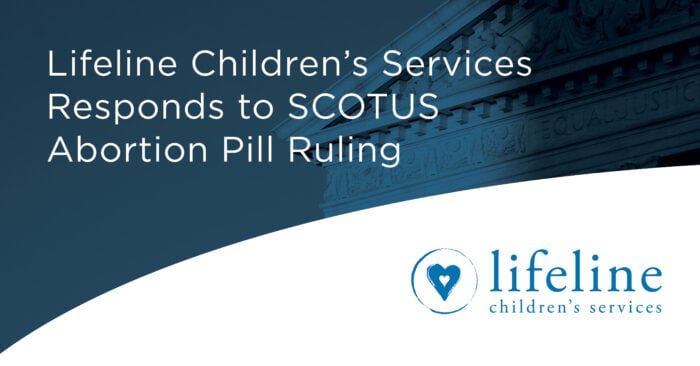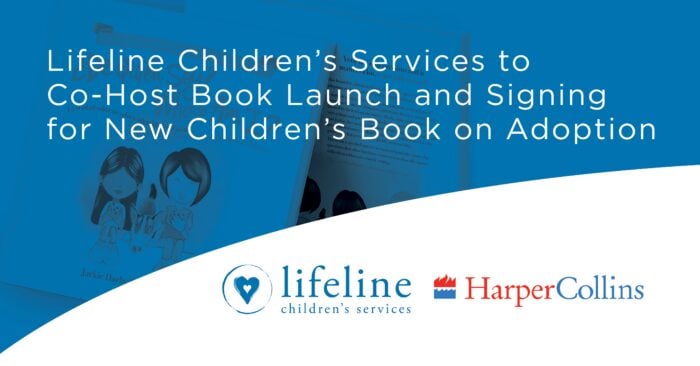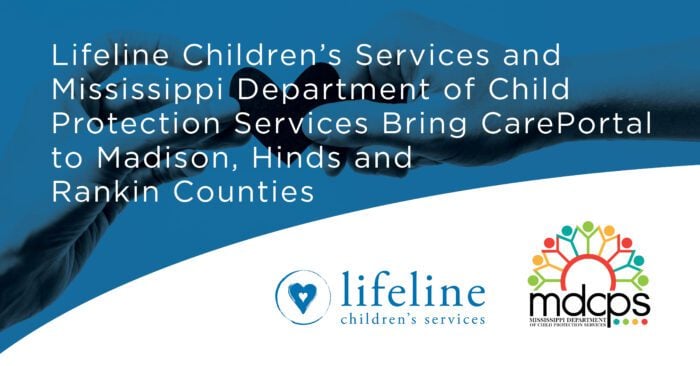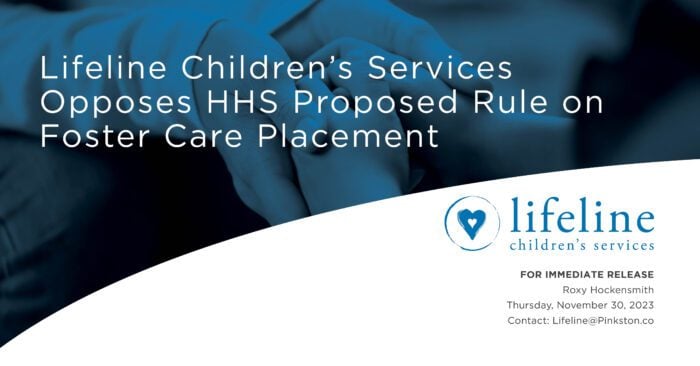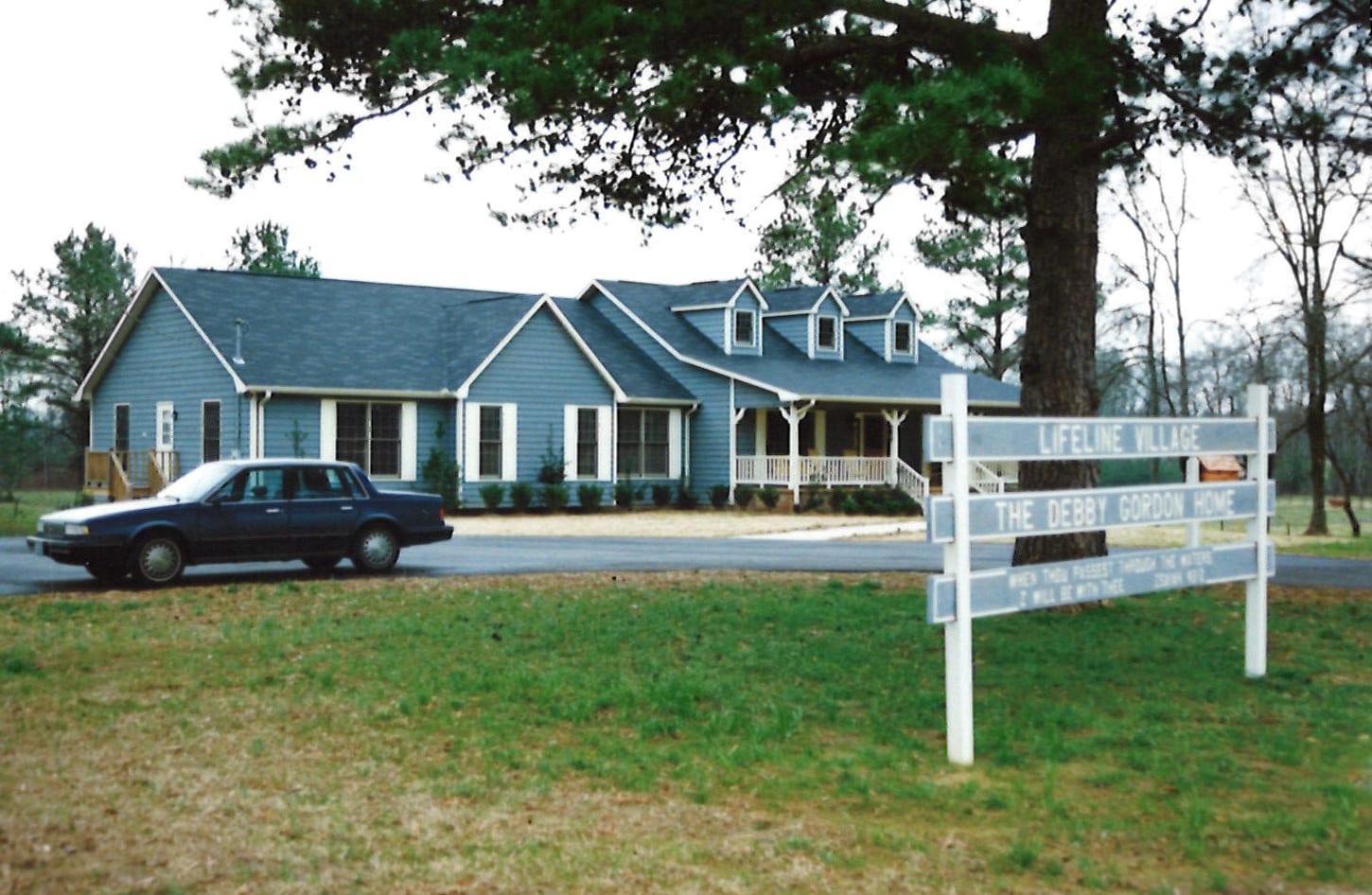“I HEAR YOU SAY YOU FEEL WORTHLESS BECAUSE YOU’VE MADE A MISTAKE. BUT I’M HERE TO TELL YOU, I’M NO BETTER. THE ONLY DIFFERENCE BETWEEN YOU AND ME IS THAT I HAVE HOPE. AND I’D LOVE TO TELL YOU WHERE YOU CAN FIND THAT HOPE.”
– LIFELINE STAFF MEMBER TO BIRTH MOTHER
It was the 1970s and Roe v. Wade recently had led to the legalization of abortion across the United States. In Alabama, gospel evangelist Wales Goebel was working with troubled teens and saw the weight of the pro-life, pro-choice legal controversy play out before his eyes.
Not long after that monumental case, Wales founded Sav-A-Life, the first crisis pregnancy resource center in Alabama, where women could take a free pregnancy test, hear about the development of their baby, be shown the gospel, and empowered to choose life. But there was something missing.
Young women in unexpected pregnancies would find the center, decide to choose life for their baby and receive help, but didn’t know where to turn after that. What if they didn’t feel equipped to parent? What if they wanted to know more about this “Father to the fatherless” and wanted to give their baby a safe, loving, Christian family through adoption?
At the time, there was very much a stigma and shame associated with unplanned pregnancies. If a woman chose to give birth, she was often either left to fend for herself in raising the baby or forced to relinquish her rights and have no real way of knowing where the baby went or how the adoptive parents would care for her child. Adoption was not an option that many women knew about, and there were not ethical practices in place. Sometimes it was a lonely and dark process, even in choosing life.
It was actually through an article in the Birmingham News that the Lord connected Wales with John Carr, a social worker serving at a children’s home at the time. The two dreamed of creating a ministry for women for the long haul, so if they chose life for their baby, they would not feel alone.
Licensed in September 1981, Lifeline Children’s Services® was established as a Christian adoption agency and discipleship ministry — built to walk with women through a crisis pregnancy and into plans for theirs and their baby’s future.
Renee Griffin, one of the first Lifeline staff hired in 1982, explained, “Our heart was to offer the truth of the gospel to these women, but also offer them options. If they chose to parent, we wanted to equip them to do so. If they wanted to place their baby for adoption, we wanted to make sure we had Christian families lined up. This was not about just saving babies. We walked with these women and supported them.”
Within the next few years, Lifeline discovered new ways to minister to women, one being through shepherding homes — where a woman could stay with a Christian family as she progressed through her pregnancy. This was one way the local church stepped in to support women in need.
By 1984, that concept led to Lifeline’s first maternity home, Lifeline Village, built in Thorsby. It later moved to Pell City, and then Tuscaloosa, where it exists today. There, women receive housing, physical care, life skills education, and emotional and spiritual support before and after the birth of their child.
Throughout the rest of the 80s “there were many women who wanted to place their babies for adoption,” recalled Renee, who served in various capacities for almost three decades at Lifeline before retiring in September 2020. With a team of less than 10 at the time, each staff member took an all-hands-on deck approach, so “you didn’t work for Lifeline if you weren’t involved in birth mother ministry in some way,” Renee explained.
Although the process and department structure has transformed over the years, the roots of Lifeline very much remain the same today. Christie Mac Segars, Lifeline’s Vice President of Domestic Ministries, shared, “We still want women to hear and experience the gospel of Jesus and empower them to make a life decision. We always provide options counseling so she’s empowered to make a good choice for herself and her baby. We may also provide financial and tangible help, but in a way that sets her up for long-term success.”
Other aspects of care include connecting women with a local church, finding safe housing, helping secure a job or helping with resources to earn a GED, or finding a parenting class. The variety of resources reflect the variety of women that come through Lifeline’s doors — 12-year-olds to women in their 40s. Married, single, divorced, all socio-economic levels and ethnicities.
Now operating in eight states, there are 23 staff members devoted to Lifeline’s pregnancy counseling ministry. In 2019, Lifeline walked with 539 women through unexpected pregnancies.
This work does not function without its fair share of weight, though. Christy Harmon, Lifeline’s Director of Pregnancy Counseling, shared how it is a “ministry of reconciliation.”
“We see women in difficult life situations and if we’re not careful we can take on the responsibility for a good decision on our shoulders. But if we’re responsible for the outcome, then there was no point in Christ dying,” Christy shared. “We preach to ourselves constantly that God’s sovereignty is the biggest foundation for our lives and that we are not the Rescuer, we are a reflection.
“It’s such a privilege because women are literally calling us when they are in a place of deep pain and brokenness and are asking for hope,” Christy said. “These women are coming to us … and we want the Church to be a part of that.”
Thankfully, there are plenty of opportunities for the Body of Christ to be involved:
Donate to The Well, a fund used to meet the physical needs of women in unexpected pregnancies by helping cover rent, utilities, food, hospital stay, and more. Visit lifelinechild.org/the-well/.
Support Lifeline’s Birth Mother’s Day Luncheon by volunteering or financially supporting this special day built to encourage birth moms in all phases of their journey. Email [email protected].
Participate in Sanctity of Human Life on January 17, 2021, the closest Sunday to the anniversary of the Roe v. Wade case. Use this day to remember the lives lost through abortion and to stand up for life.
Visit lifelinechild.org/lifematters for free resources for your church to use.
As Renee reflected back on the decades of memories with Lifeline, she said, “In some ways it’s not much different today than it was back when we first started. We hold the gospel paramount and since we’re all no different in our sin, we hold tightly to 2 Corinthians 5:14-21. Because I’m a sinner and I need grace, I can show that same grace to someone else.”
“For Christ’s love compels us, because we are convinced that one died for all, and therefore all died. And he died for all, that those who live should no longer live for themselves but for him who died for them and was raised again. So, from now on we regard no one from a worldly point of view. Though we once regarded Christ in this way, we do so no longer. Therefore, if anyone is in Christ, the new creation has come. The old has gone, the new is here! All this is from God, who reconciled us to himself through Christ and gave us the ministry of reconciliation: that God was reconciling the world to himself in Christ, not counting people’s sins against them. And he has committed to us the message of reconciliation. We are therefore Christ’s ambassadors, as though God were making his appeal through us.”
2 Corinthians 5:14-20a
